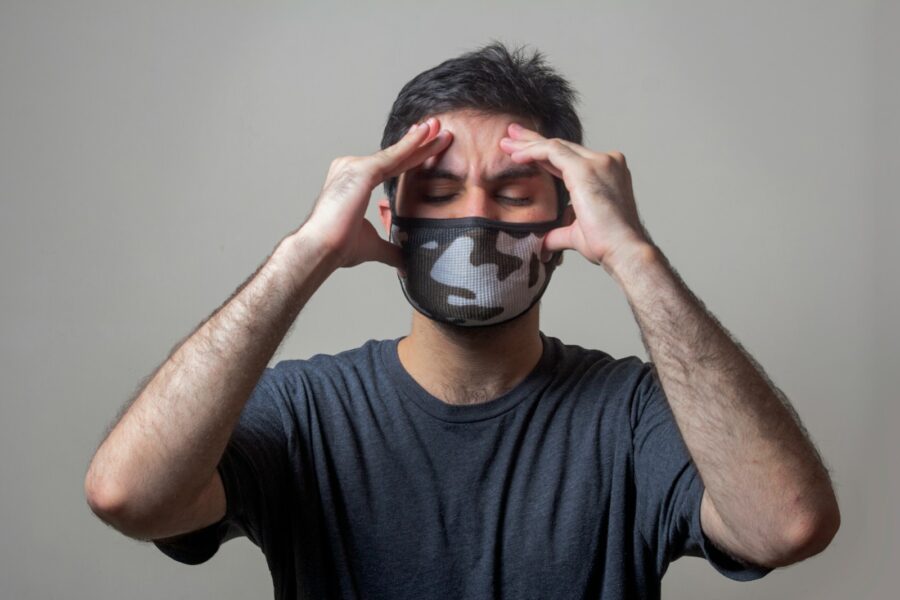A new survey developed by the European Migraine & Headache Alliance (EMHA) and The Migraine Trust reveals that people affected with migraine feel discriminated against in all aspects of their everyday lives.
The study, which captured the experiences of over 4,000 individuals with and without the condition across Europe, found that migraine is more stigmatising than dementia, Parkinson’s disease, and stroke.
Migraine stigma occurs when people affected perceive negative, dismissive, or intolerant attitudes from others due to their condition. This stigma often arises from a lack of understanding. The survey revealed that 26% of respondents who did not have migraine believe that the condition is nothing more than strong headache. Unfortunately, migraines are often equated with a normal headache.
The consequences of migraine stigmatisation can be profound and have negative implications. For example, the study revealed that 93% of those affected by migraine believe that the public lacks a proper understanding of the condition. As a result, 35% of them admit to delaying or avoiding seeking medical advice due to the feelings of embarrassment and the fear of judgment from healthcare professionals. In fact, the survey highlights that 74% of those affected felt that medical professionals do not take their condition seriously.
Peter Goadsby, Professor of Neurology at King’s College London, said:
The data from the survey is a wakeup call to clinicians that highlights an important dimension of burden of migraine to our patients.
Peter Goadsby, Professor of Neurology at King’s College London
Goadsby, who is also one of the academics behind the study, emphasises the importance of better communication about the disorder’s impact and the ways we communicate about the problem.
In the workplace, 62% of respondents believe that migraine has influenced how their employers assess their value. Interestingly, around 43% of those surveyed have chosen not to disclose their conditions to their employers, despite many acknowledging difficulties in completing work tasks.
Individuals with migraine express feeling additionally stigmatized due to the general lack of understanding about the condition, making them hesitant to share their health status at work. However, a significant 80% of non-full-time workers report experiencing negative impact on their careers because of migraines.
According to the survey, migraine stigma left people with the condition feeling angry, lonely, and sad.
Redefining language
The EMHA is advocating for a re-evaluation of the language surrounding migraine diagnosis, which shows that 65% of individuals with migraine feel stigmatised by terms such as – ‘disabling,’ ‘episodic,’ ‘chronic,’ and ‘refractory.’ The initiative to redefine the language aims to facilitate better understanding among families, colleagues, healthcare practitioners, and authorities.
This year, the EMHA is set to introduce a new categorisation system to effectively convey the severity of migraine, marking a significant step toward eradicating stigma and promoting inclusivity for people affected.
Elena Ruiz de la Torre, EMHA E.D said:
We now have clear evidence that shows how stigma impacts the lives of people suffering with migraine. We want society to recognise how this stigma impacts the lives of those who live with it. Stigma happens at home and in the workplace, but also within the healthcare system itself. Stigma should have no place in healthcare or the workplace.
Elena Ruiz de la Torre, EMHA E.D
This survey complements the EMHA’s earlier study in 2022, which highlighted the prolonged struggle faced by individuals with migraines in accessing timely diagnosis and proper treatment. This revealed that waiting times are averaging five years for diagnosis and an additional three years for appropriate care.
Joanne is the editor for Workplace Wellbeing Professional and has a keen interest in promoting the safety and wellbeing of the global workforce. After earning a bachelor's degree in English literature and media studies, she taught English in China and Vietnam for two years. Before joining Work Well Pro, Joanne worked as a marketing coordinator for luxury property, where her responsibilities included blog writing, photography, and video creation.



